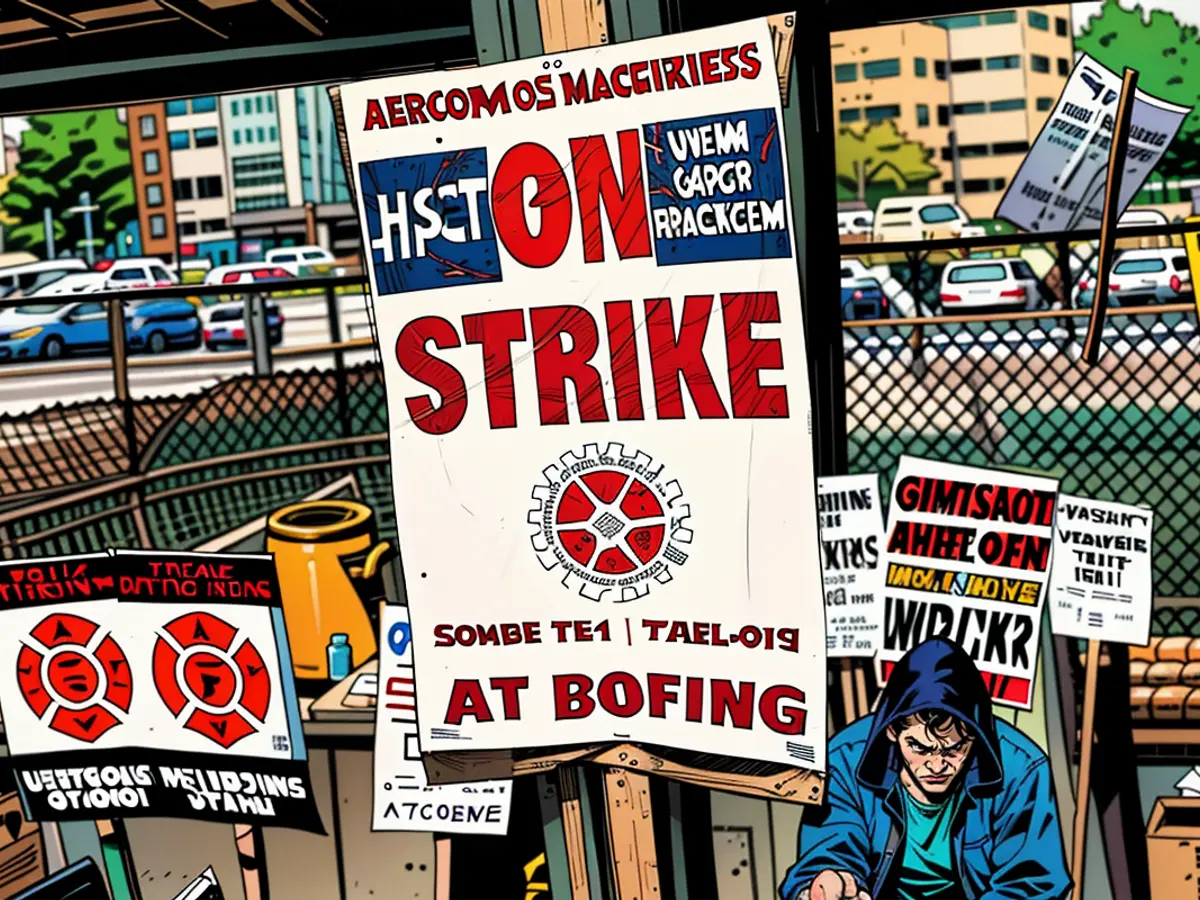Boeing and other industrial actions are anticipated to result in a significant job reduction of approximately 44,000 positions in the October employment statistics.
That's the most significant monthly job reduction in a year, as per the Bureau of Labor Statistics' recent labor dispute report.
The majority of this decrease stems from the 33,000 striking mechanics at Boeing. Although the massive number of idle mechanics and the fallout from two major hurricanes might briefly disrupt a consistent job growth pattern, the last employment report before the election isn't predicted to be as gloomy as originally suspected, economists suggest.
"We no longer foresee a negative report for October," Joe Brusuelas, RSM US's top economist and principal, shared with CNN on Friday.
"Our model, excluding strikes, hurricanes, and weather disruptions, would have projected 200,000 job gains for October," Brusuelas explained. "So, our forecast is for a 120,000 increase in total employment, which is satisfactory in its own right. However, it might underestimate the actual pace of labor creation in the economy."
Beyond the listed striking workers, Brusuelas expects an additional deduction of 5,000 to 7,000 Boeing jobs due to the company's announced plan to decrease its workforce by 10%, or 17,000 jobs.
Approximately two weeks ago, as the Southeast was recovering from Hurricane Helene's destruction, Florida was bracing for even greater damage from the formidable Hurricane Milton. Although Milton wasn't as catastrophic as initially feared, the consecutive impact of Helene and Milton indeed inflicted severe damage on the Southeast, resulting in numerous casualties and billions of dollars in damages.
The broader impact on the U.S. economy was expected to be transient. Storms and one-time events often dent GDP before delivering an equivalent, if not greater, recovery in the following quarter. However, the unfavorable timing of the strikes and hurricanes for economic data — which is closely monitored by the Federal Reserve during its multi-year inflation battle and by the general public ahead of a tight and divisive election — couldn't have been worse.
However, the resilience shown after Hurricane Helene's late-September landfall — coupled with on-site assistance and direct payments — enabled people and businesses to return to work sooner than anticipated, according to Brusuelas. The BLS's reference period for the jobs report is the pay period that includes the 12th of the month.
Despite the positive outlook from economists, the ongoing strike by 33,000 mechanics at Boeing and the aftermath of two major hurricanes might still have an impact on the business sector and the broader economy. According to RSM US's top economist Joe Brusuelas, the actual labor creation pace might exceed the projected 120,000 job increase in total employment.








